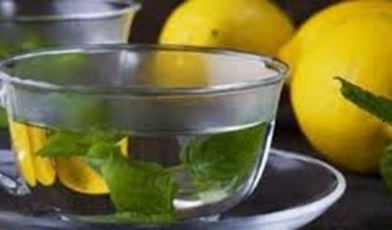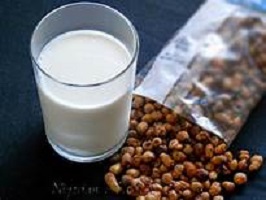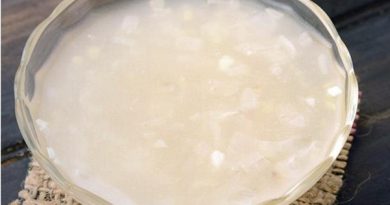Lemon Leaves Tea Benefits for Skin
Lemon Leaves Tea Benefits for Skin
Lemon leaves tea may offer several potential benefits for the skin when consumed regularly as part of a balanced diet and healthy lifestyle.

Here are some ways in which lemon leaf tea may contribute to skin health:
Table of Contents
Lemon Leaves Tea Benefits ~ Antioxidant Protection
Lemon leaves contain antioxidants such as flavonoids, polyphenols, and vitamin C, which help neutralize free radicals that can damage skin cells and contribute to premature aging. Consuming lemon leaves tea may help protect the skin from oxidative stress and maintain its youthful appearance.
Lemon Leaves Tea Benefits ~ Promotes Hydration
Staying hydrated is essential for healthy skin, and drinking lemon leaf tea can contribute to your daily fluid intake. Proper hydration helps maintain skin moisture levels, improve elasticity, and promote a glowing complexion.
Lemon Leaves Tea Benefits ~ Supports Collagen Production
Vitamin C, found abundantly in lemon leaves, plays a crucial role in collagen synthesis. Collagen is a protein that provides structure and elasticity to the skin, helping to keep it firm and supple. Regular consumption of lemon leaves tea may support collagen production and contribute to skin firmness and elasticity.
Anti-inflammatory Properties
Compounds present in lemon leaves have anti-inflammatory properties that may help soothe inflamed or irritated skin conditions such as acne, eczema, or rosacea. Drinking lemon leaves tea may help reduce redness, swelling, and discomfort associated with inflammatory skin conditions.
Detoxification
Lemon leaves tea acts as a mild diuretic, promoting the elimination of toxins and waste products from the body through urine.
By supporting the body’s natural detoxification processes, lemon leaves tea may help purify the skin from within, reducing the risk of blemishes and promoting a clearer complexion.
Skin Brightening
The vitamin C content in lemon leaves tea may help brighten the skin and fade hyperpigmentation or dark spots over time.
Regular consumption of lemon leaf tea, combined with proper sun protection, may contribute to a more even skin tone and a radiant complexion.
Reduces Bacterial Growth
Lemon leaves possess natural antimicrobial properties that can help inhibit the growth of bacteria on the skin’s surface.
Incorporating lemon leaf tea into your diet may help reduce the risk of bacterial infections, acne breakouts, and other skin issues caused by bacteria.
It’s important to note that while lemon leaf tea may offer potential benefits for skin health, individual results may vary, and it’s not a substitute for a comprehensive skincare routine tailored to your specific needs.
Additionally, if you have any allergies or sensitivities to citrus fruits, you should exercise caution when consuming lemon leaves or products derived from them.
As always, it’s advisable to consult with a healthcare professional or dermatologist for personalized advice regarding your skincare concerns.
Lemon Leaves
The lemon leaf, scientifically known as Citrus limon, is the foliage of the lemon tree. They are an integral part of the lemon tree, which is a small evergreen tree native to Asia.
Lemon leaves are characterized by their glossy, dark green appearance and a distinct citrus fragrance.

Here are some key points about lemon leaves:
Aromatic Properties
Lemon leaves are renowned for their strong citrus scent, which is similar to the aroma of lemon fruits.
This fragrance is attributed to the presence of essential oils within the leaves, particularly limonene and citral.
Culinary Uses
Lemon leaves are used in culinary applications to impart a subtle lemon flavor to dishes.
They can be added to marinades, soups, stews, and sauces to enhance the taste and aroma of various recipes.
Lemon leaves are also used as a wrapper for grilling or steaming foods, infusing them with a delicate citrus essence.
Medicinal Uses
In traditional medicine, lemon leaves have been utilized for their potential health benefits.
They are believed to possess antioxidant, anti-inflammatory, and antimicrobial properties.
Lemon leaves tea, brewed from fresh or dried leaves, is consumed for its purported digestive, immune-boosting, and calming effects.
Decorative Purposes
Lemon leaves are often used in floral arrangements and decorations due to their vibrant green color and glossy appearance.
They can serve as a backdrop or filler in bouquets and centerpieces, adding a touch of freshness and elegance.
Pest Repellent
The essential oils present in lemon leaves have natural insect-repellent properties. Placing lemon leaves or spraying lemon leaf extract around the home and garden can help deter pests such as mosquitoes, ants, and flies.
Cultural Significance
Lemon leaves hold cultural significance in various traditions and rituals.
They are sometimes used in ceremonies, celebrations, and religious practices as symbols of purification, vitality, and prosperity.
Growing Lemon Trees
Lemon leaves are harvested from lemon trees, which can be cultivated in regions with a suitable climate.
Lemon trees require well-drained soil, ample sunlight, and regular watering to thrive.
They are commonly grown in home gardens and orchards for their fruit as well as their decorative foliage.
Overall, lemon leaves serve multiple purposes beyond just being foliage on a lemon tree. From culinary and medicinal uses to decorative and practical applications, lemon leaves contribute to various aspects of human life and culture.
Lemon Leaves Tea
Lemon leaves tea, also known as lemon leaf tea or lemon verbena tea, is an herbal infusion made from the leaves of the lemon tree (Citrus limon) or lemon verbena plant (Aloysia citrodora).
It offers a refreshing and aromatic beverage with potential health benefits. Here’s how lemon leaves tea is typically prepared and some of its characteristics:
Preparation
To make lemon leaf tea, you can use either fresh or dried lemon leaves. If using fresh leaves, wash them thoroughly under running water to remove any dirt or debris.
Next, bruise or crush the leaves slightly to release their essential oils and flavor. For dried leaves, simply measure out the desired amount.
Infusion
Place the fresh or dried lemon leaves in a teapot, mug, or infuser. Bring water to a boil, then pour it over the leaves.
Allow the leaves to steep in the hot water for about 5 to 10 minutes, depending on your preference for strength. Longer steeping times will result in a stronger flavor.
Flavor Profile
Lemon leaves tea has a light, citrusy flavor reminiscent of lemon, but more subtle. It is often described as refreshing and uplifting, with a delicate aroma.
The taste can vary slightly depending on factors such as the type of lemon leaves used and the steeping time.
Health Benefits
Lemon leaf tea may offer various potential health benefits due to the presence of antioxidants, vitamins, and other bioactive compounds.
These benefits may include supporting digestion, boosting the immune system, promoting relaxation, and providing relief from respiratory symptoms.
However, more research is needed to fully understand the effects of lemon leaf tea on human health.
Caffeine-Free
Lemon leaf tea is naturally caffeine-free, making it a suitable option for those looking to limit their caffeine intake.
It can be enjoyed at any time of day, including in the evening or before bedtime, without interfering with sleep.
Customization
Lemon leaves tea can be enjoyed plain or with added sweeteners such as honey, agave nectar, or sugar to taste.
Some people also like to enhance the flavor by adding a slice of fresh lemon or a sprig of mint.
Serving
Once the tea has steeped to your desired strength, strain out the leaves and pour the tea into cups or mugs.
It can be served hot, especially during colder months, or chilled over ice for a refreshing summer drink.
Overall, lemon leaf tea offers a delightful combination of flavor and potential health benefits, making it a popular choice among herbal tea enthusiasts.
Lemon Leaves Tea Benefits
Lemon leaves tea, made from the leaves of the lemon tree (Citrus limon), offers several potential health benefits:
Rich in Antioxidants
Lemon leaves contain antioxidants such as flavonoids, polyphenols, and vitamin C, which help combat oxidative stress and reduce the risk of chronic diseases.
Boosts Immunity
The high vitamin C content in lemon leaves tea may help strengthen the immune system, protecting the body against infections and illnesses.
Digestive Aid
Lemon leaves tea is believed to have digestive properties that can alleviate indigestion, bloating, and other gastrointestinal issues.
It may also help stimulate the production of digestive enzymes.
Anti-inflammatory Properties
Some studies suggest that lemon leaves contain compounds with anti-inflammatory effects, which may help reduce inflammation in the body and alleviate symptoms of inflammatory conditions.
Calming and Relaxing
Lemon leaves tea has a pleasant aroma and flavor, which can have a calming effect on the mind and body.
It is often consumed as a natural remedy to relieve stress and promote relaxation.
Supports Weight Loss
Lemon leaves tea is low in calories and can be a good alternative to sugary beverages. Drinking it regularly may help boost metabolism and aid in weight management when combined with a healthy diet and exercise.
Oral Health
The antimicrobial properties of lemon leaves tea may help promote oral health by reducing bacteria in the mouth, preventing bad breath, and protecting against gum disease and tooth decay.

Diuretic Effect
Lemon leaves tea may act as a diuretic, promoting the elimination of excess fluids and toxins from the body, which can help reduce bloating and support kidney health.
It’s essential to note that while lemon leaf tea offers potential health benefits, more research is needed to fully understand its effects on human health.
Additionally, individuals with citrus allergies or sensitivities should exercise caution when consuming lemon leaves or products derived from them.
As with any herbal remedy, it’s advisable to consult with a healthcare professional before incorporating lemon leaf tea into your routine, especially if you have any underlying health conditions or are taking medications.

